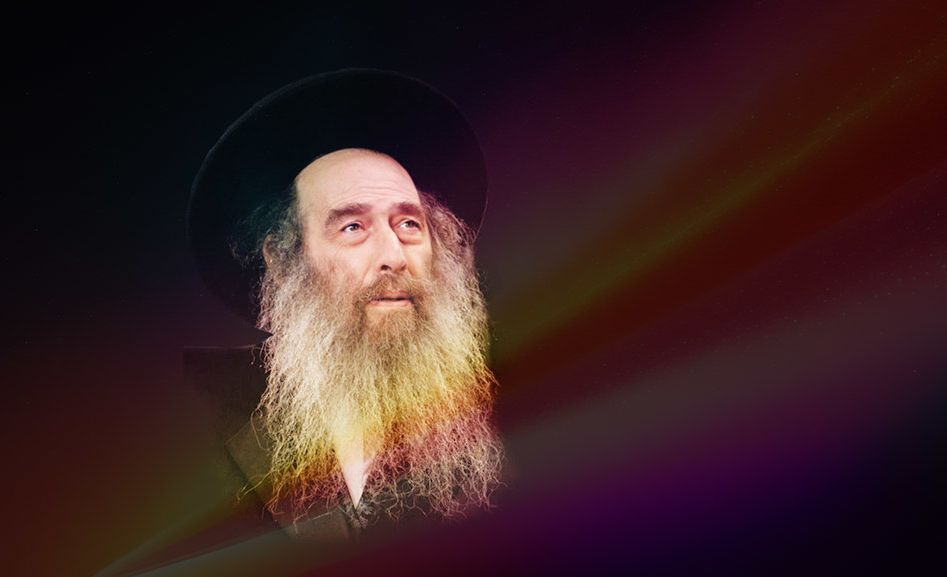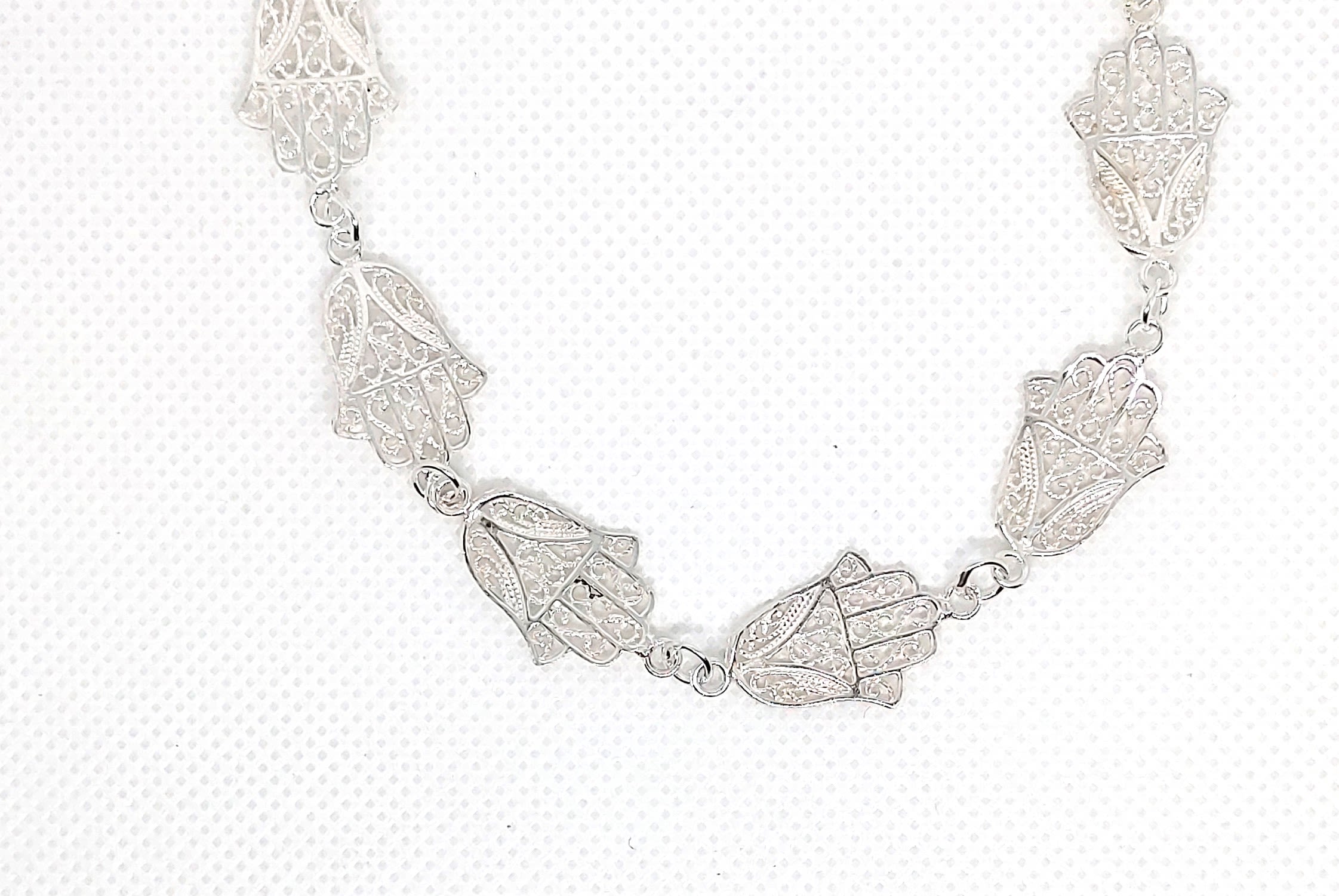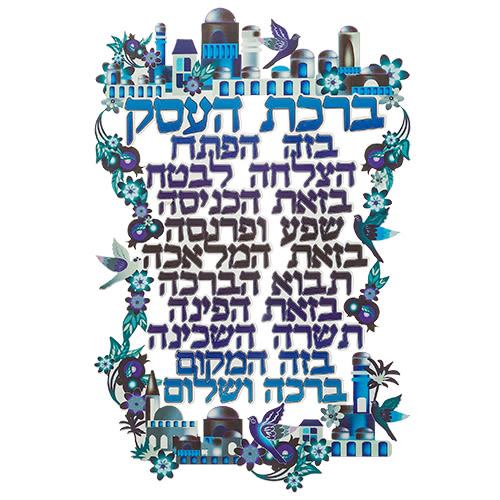
The Fruits of Emuna
As parents, we had only two basic rules that we stuck to: never compare; never call names. We were not perfect parents by any means, but we understood the power of words...

“Our message to our children becomes their inner voice.”
One of the greatest manifestations of our emuna is the trust we have in our children.
If we consistently convey our belief in their strength and morality, we instill in them an inner voice that says: “You are good and you can do the right thing even when it’s hard.”
I always believed in my kids. No matter what they were going through, I knew they were good kids. How could they not be? They were mine!
My husband and I had only two basic rules that we stuck to throughout the years. Never compare; never call names. We were not perfect parents by any means but we understood the power of words to build or to destroy.
We faced some especially difficult challenges. Not being familiar with the Israeli yeshiva system made it hard for us to understand what our sons were experiencing.
Not all my boys succeeded in yeshiva (religious high school). Our second son, Shlomo, had a very hard time studying Torah all day. He kept telling me. “Ema, I'm not a regular yeshiva boy.” Knowing what an active boy he was, I sympathized with him but back in those days there were few options. Nowadays there  are yeshivas offering programs for less academic students who are talented in other ways.
are yeshivas offering programs for less academic students who are talented in other ways.
But one thing I knew for sure about my son, Shlomo. He had an extraordinary way with people. He was a gifted mimic with a magnetic personality and a big heart. I never worried about him for a second even though he was not fitting in the way his older brother was. Even when he was growing his hair long and riding a motorbike, I had emuna that he would do something very special with his life.
One summer, when Shlomo was fifteen, all the teenage boys from our settlement went on a big trip, leaving early in the morning. Their first stop was the Dead Sea where they met up with a boy whose family had lived in our community until a few months before.
Gavriel was a sweet boy who had fallen in with a bad crowd and made some serious mistakes. Many of the parents on our settlement were wary of him but I always welcomed him into our house. I remembered what it was like to be a troubled teenager and do stupid things. I believed he was still a good boy.
That morning, Gavriel was waiting to see his old friends and asked to join them on the trip.
The adult in charge said absolutely not.
Gavriel explained that he had come specially to meet the bus hoping to continue on with them.
The other kids began to chant “Let him come, let him come!”
The man in charge stayed firm and would not give permission.
Gavriel was devastated. He was among childhood friends and the man in charge knew him. He begged to be allowed to board the bus.
The bus driver began honking repeatedly. He had a schedule to keep and the arguing was getting on his nerves. He began shutting the door and all the kids in the group gave up and hurried onto the bus. They had a whole day of fun ahead of them. Each boy had paid 200 NIS for this excursion and no one was willing to throw it away. Except for one boy…
Shlomo refused to get on the bus without Gavriel. The man in charge ordered him back on the bus but Shlomo wouldn't budge. And so the group drove away, leaving two young boys with no money and no ride home.
Several hours later Shlomo showed up at our house. Of course we were surprised to see him. He told us that he hadn't felt well during the trip and someone had taken him to the bus stop. I remember being disappointed that he had missed such a fun day, one he had been looking forward to for weeks.
Late that evening, the man in charge of the trip dropped by our house and asked to speak to Shlomo. Curious, I called him from his room. When the man saw him he held out 200 NIS and said it was a refund. He regretted his decision to leave Shlomo and Gavriel behind and he wanted to apologize. My husband and I looked on in shock as we had not heard a word about this.
Shlomo listened to the man speak. He accepted his apology but he would not accept the money and eventually the man left. Shlomo explained that he and Gavriel had hitchhiked back to Jerusalem and then each one to his home.
My husband and I were quiet as our son returned to his room. My heart was filled with wonder and pride. I was overjoyed to learn of my son's compassion and his willingness to forfeit his own pleasure to stand by a friend. I wondered if I would have done the same.
Many years later my son Shlomo opened a yeshiva for boys at risk at a beautiful spot on Mount Zion, the very place where I had once learned as a new baalas teshuva. It's called Hashivenu (Bring us Back) and has been home to hundreds of teenage boys throughout its nine years.
Running a school is not an easy job and of course raising the necessary funds is always a challenge. But thank God, there are caring people who contribute as much as they can to give these young boys a second chance.
One man in particular, who is very successful in both business and Torah learning, donates generously to this yeshiva for Jewish boys at risk.
His name is Gavriel.
* * *
Rebbitzen Yehudit Channen began her career as a Crisis Intervention Counselor in Silver Spring, Md. in the seventies. After moving to Israel, she worked as a marital mediator and social skills instructor for kids. Following the death of a son, Rebbitzen Channen became a certified bereavement counselor and worked with young mothers who had suffered loss. Most recently she worked at the Melabev Center for the memory-impaired, as an activity director and group facilitator for families coping with Dementia. The Rebbitzen has written for numerous magazines and newspapers and recently led an interactive creative writing course called Connective Writing. Yehudit Channen is the wife of Rabbi Don Channen, Rosh Yeshiva of Keter HaTorah. They are blessed to have nine children and many grandchildren and live in Ramat Beit Shemesh.











Tell us what you think!
Thank you for your comment!
It will be published after approval by the Editor.